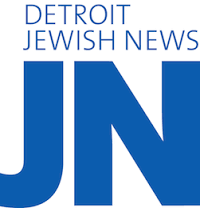For many Jewish students at the University of Michigan, their celebration of the Jewish New Year was unjustly marred by feelings of pain and ostracism. On Rosh Hashanah, a campus group called “Students Allied for Freedom and Equality” (SAFE) erected a so-called “apartheid” wall and mock Israeli checkpoints on the Diag, in the center of the campus. As one Jewish student described it, the wall falsely depicted Israel as an apartheid state, and falsely painted the soldiers of the Israel Defense Forces as vicious murderers.
Many Jewish students expressed how hurt, offended and marginalized they felt by SAFE’s actions. SAFE unapologetically justified them, claiming that the group’s goal was “to start the conversation about the oppression of Palestinians under occupation.” If that were true, then SAFE would have scheduled its anti-Israel demonstration on a day when Jewish students could be part of the conversation. Instead, as SAFE undoubtedly knew, many Jewish students were observing the holiday, either on campus or elsewhere, and were thus denied the opportunity to stand up for their Jewish homeland in dialogue with others in the campus community.
Over 1100 students signed a petition urging University President Mark Schlissel to speak out. In addition, four national organizations, including the Simon Weisenthal Center and StandWithUS, co-signed the Zionist Organization of America’s (ZOA) letter to President Schlissel, urging him to issue a statement condemning SAFE for erecting its “apartheid” wall and mock checkpoints on a Jewish holy day. While SAFE had the legal right to hold its demonstration on Rosh Hashanah, it was important for President Schlissel to acknowledge that SAFE’s actions had hurt members of the Jewish community and made them feel excluded.
But President Schlissel has not spoken out. Responding to the ZOA’s letter, he justified SAFE’s actions, calling them “pro-Palestinian or anti-Israel,” but containing “no specific or symbolic reference to Jews.”
That characterization is troubling for several reasons. For one thing, there was nothing “pro-Palestinian” about SAFE’s demonstration. It was an all-out attack on Israel, presenting the group’s usual false narrative that Israel is a brutal oppressor and that Palestinian Arabs are Israel’s innocent victims. For another thing, the fact that SAFE’s actions made no reference to “Jews” did not make them any less offensive to Jewish students. Schlissel failed to appreciate the land of Israel’s centrality to Judaism and to Jews. Israel is the historic and religious homeland of the Jewish people, where Jews have lived for more than 3000 years. The land’s ancient name was “Judea,” derived from the same root as the word “Jew.” When Jews pray, they turn toward their holy city of Jerusalem. Even assuming that Schlissel was unaware of these facts, it should have been enough for him to know that Jewish students on his campus were hurt by SAFE’s actions on Rosh Hashanah, without parsing whether their pain was legitimate.
Indeed, Schlissel showed a more expansive and compassionate appreciation of what was offensive to students — when the offended students were Muslim. Last year, the movie “American Sniper” was going to be screened on campus. This was a dramatization of the life of U.S. Navy Seal Chris Kyle who served over four tours of duty in Iraq and received several medals for his acts of heroism. But when Muslim students claimed they were offended by the movie’s content, the screening of this inspiring movie was cancelled.
Fortunately, the University recognized that cancelling the movie would violate the right of free expression and it was screened as scheduled. But both Schlissel and the vice president for student life validated the feelings of Muslim students, issuing statements acknowledging that while cancelling the movie was a mistake, it was important to recognize that some Muslim students felt uncomfortable, marginalized and hurt by the movie’s content.
Why is Schlissel refusing to take the very same steps when Jewish students feel hurt and marginalized? As the president knows, SAFE has a history of targeting, threatening and causing pain to Jewish students. Just last year, for example, SAFE began a vendetta against a Jewish student and called for his removal from student government simply because the student objected to the timing and appropriateness of SAFE’s anti-Israel display on campus. SAFE erected it on the very day that there were two terrorist attacks in Israel, killing five people, including Jewish American Ezra Schwartz.
The ZOA, with eight other national organizations, including the American Center for Law and Justice and American Association of Jewish Lawyers and Jurists, urged Schlissel to speak out then, not just for the Jewish student who was being bullied and harmed, but for all students. The president needed to make it clear that SAFE’s actions were wrong and that students could not be harassed for exercising their right to free speech and to challenge anti-Israel conduct. But Schlissel wouldn’t speak out then, either.
Schlissel’s silence when Jewish students’ rights are at stake should be troubling to all of us. Students, parents, donors, alumni, the Regents, and members of the community should be asking him why he seemingly takes the feelings and concerns of Jewish students less seriously than the concerns of other students who have felt hurt and marginalized on campus.
Susan B. Tuchman, Esq. is the Director of the Zionist Organization of America’s Center for Law and Justice and Morton A. Klein is the National President of the Zionist Organization of America.
